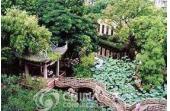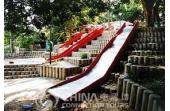Macau
- Things to do
-
- Photo(97)
- Tips&article(127)
- Make it Happen
- Map
-
loading...
Top 5 Lists
-
4.
Barra Fort
Macau is a tiny Chinese territory that is about 28 square kilometers in size. It is composed of a main island, a small peninsula and an airport island. The small island was once two small islands named Ilha de Taipa and Ilha de Coloane, but they were connected by a strip of landfill. The area of landfill is where the biggest new casinos are being built.
Land is still being added there. The airport was built about 2 kilometers or a mile and a half east of the small island on landfill. It is basically a straight and narrow artificial island with an airstrip. Macau has become Asia’s international gambling city, and it is considered the biggest gambling center in the world, with gambling revenues bigger than the Las Vegas Strip.
It is one of the top 20 tourist destinations in the world. Several major Las Vegas casino companies have casinos and hotels here, and more are being built. So this little territory is the fastest growing territory in the world, growing faster than any other country or territory. The GDP grew about 13 percent in 2008.
Along with gambling, the city’s attractions are old buildings, the Macau Great Prix race, concerts and shows, some museums, and beaches.
Detailed Descriptions
Macau is a fusion of east and west in lifestyles, architecture and food. There are both eastern and western religions, and both western and eastern holidays are observed. The new casinos and hotels are sophisticated like those in Las Vegas. So in its small area, you can see both old architecture of Asian and European origin and sophisticated modern luxury and resort buildings.
You can see the Portuguese influence everywhere, with cobbled small streets, Portuguese churches and fortresses, gardens, and the pastel colors used. In 2005, many places were designated as a UNESCO World Heritage Site.
The largest new casinos cost billions of US dollars to build and are among the biggest such resort/casinos in the world. For example, the Venetian Macao cost 2.4 billion USD. It is the largest single structure hotel building in Asia and the fourth-largest building in the world measured by floor space. It has more floor space than any skyscraper in the world. There is a 15,000 seat arena for sports and entertainment events in it.
The territory has interesting demographics. Macau is the most densely populated region in the world with about 18,500 people living in each square kilometer. You would think that this would make for a poor living environment, but according to some estimates, the population has an average life expectancy of 84 years. This is first in the world, and they are thought to live longer than Japan’s population. This means they live longer than any other people. Maybe if you live there, you’ll live longer.
About 95 percent of the people are of Chinese descent. Some of the rest are multiracial. About 95 percent of the people speak a Chinese language as their native language -- mainly Cantonese. Only about 1.5 percent of the people speak English at home. It is strange, but in this former colony of Portugal, only a half a percent of the people speak Portuguese at home. Plenty of people speak English, especially the staff in the bigger hotels and tourist spots. However, a large number of the local people do not speak English.
For decades, Hong Kong residents have traveled to Macau to gamble or for entertainment, so this helped the Macau people learn the language. About 30 percent of Macau’s tourists still come from Hong Kong. The two territories are close together, only about an hour away from each other by regular ferry, and since casinos have been illegal in Hong Kong, the Hong Kong residents went there for gambling, entertainment and a change of pace. There was no other place nearby to go to.
Location:
Macau is 60 kilometers (37 miles) southwest of Hong Kong. This is about an hour ride on a regular ferry, and there are also faster ferries. The Macao Peninsula is between the Pearl River and the Xijiang River on the southern border of Guangdong Province. It borders the Special Economic Zone of Zhuhai that is also a tourist destination. There is a border crossing called Portas do Cerco on the Macau side and Gongbei Port of Entry on the Zhuhai side.
Three bridges connect the peninsula and the island, and two especially built roadways connect the airport island and the main island.
Features:
- New and big hotel/casino/resort complexes.
- World class facilities for gambling and Las Vegas casino-style entertainment
- Old architecture within walking distance to visit.
- Macau's two beaches named Hac Sa (Black Sand) and Cheoc Van (Bamboo Bay) are located on the southern side of the main island.
- Some good museums: Museum of Taipa and Coloane History, Macau Marine Museum, Macau Wine Museum, and Macau Great Prix Museum.
- Many good restaurants of many styles of cuisine.
- The Macau International Airport (MFM) that is only about 7 minutes from the big casino area makes travel to the city easy.
Touring Activities:
- Gamble.
- See the shows and the hotel/casinos.
- Take a vacation for relaxation and tour the little area.
- Visit the historical buildings and museums.
- Go to the beach.
- Go to Zhuhai or Hong Kong to tour and shop.
- Hiking and Bicycling:Taipa Grande and Taipa Pequena in the north and Alto de Coloane in the south are little hills that have hiking trails. Alto de Coloane is the highest hill in Macau and is 170 meters (560 ft) tall. You can see good views of the island and sea, and on the northern hills you can see all of Macau. Bicycles for touring the island are available at a rental kiosk near the bus stop adjacent to the Museum of Taipa and Coloane History.
Coloane in the southern part of the main island has an extensive network of well-maintained hiking trails. The trails are accessible from Seac Pai Van Park and from Cheoc Van and Hac Sa beaches. The main Coloane Trail goes up Alto de Coloane.
Related Links
- Macau Visa
- Customize a Macau tour
History
The small region was once a Portuguese colony. In 1152, it became part of Xiangshan County. In 1557, Portuguese made the first permanent European settlement in the Far East. In 1557, the area was ceded to Portugal, but the Qing Empire still claimed the area as their own, and the Portuguese still paid taxes to China. The Qing Dynasty continued to collect taxes until 1849 when the Portuguese claimed independence. Macau became a Special Administrative Region of China in 1999 two years after Hong Kong became an SAR.
The economy of the territory is based on tourism and gambling. Gambling started about the time that the territory first declared independence. In an attempt to generate revenues for the government, gambling was legalized in 1847. At first, the gambling was mainly Chinese-style gambling. Not until the middle of the twentieth century did Las Vegas-style casinos become popular. Now the large world-wide mega-corporations are starting to dominate the economy.
During the past decade, casino corporation developers have implemented plans for the “Cotai Strip” resort area that is in the area of landfill called Cotai that connects the two islands. On this square piece of land that is less than 3 kilometers wide (less than two miles wide) from west to east, the Sands Macao was opened in 2004, the Venetian Macao called the biggest hotel-casino in the world was opened in 2007, and the smaller City of Dreams was opened in 2009.
The developers aim to profit from the huge and rapidly growing Chinese market for gambling and for travel to places outside the main part of the country, and they also hope to attract Asians from other countries. Gambling has always been a popular activity among Chinese, but gambling is mostly illegal in China, except for lotteries. They want to continue to interest Hong Kong residents and attract millions of tourists from the newly developed Asian countries. However, the recent world financial crisis and depressionary period stalled some of the ambitious development proposals and ideas.
The Cotai Strip is well situated for gambling and tourism. It is only about 8 minutes from the airport and about 7 minutes from Hengqin Island in China over the Lotus Bridge. It is in the middle of the region of the world with the fastest growing large countries, and gambling has long been popular among Chinese and other Asian people. The Portuguese influence makes the territory seem both exotic and relaxed.
Tips & articles
|
|
|
forum discussion
|
|
|











